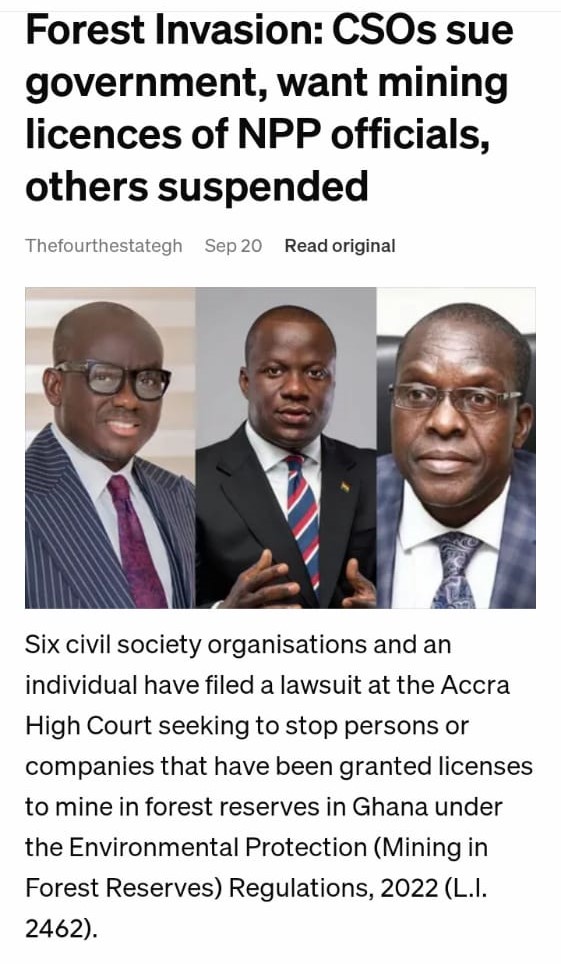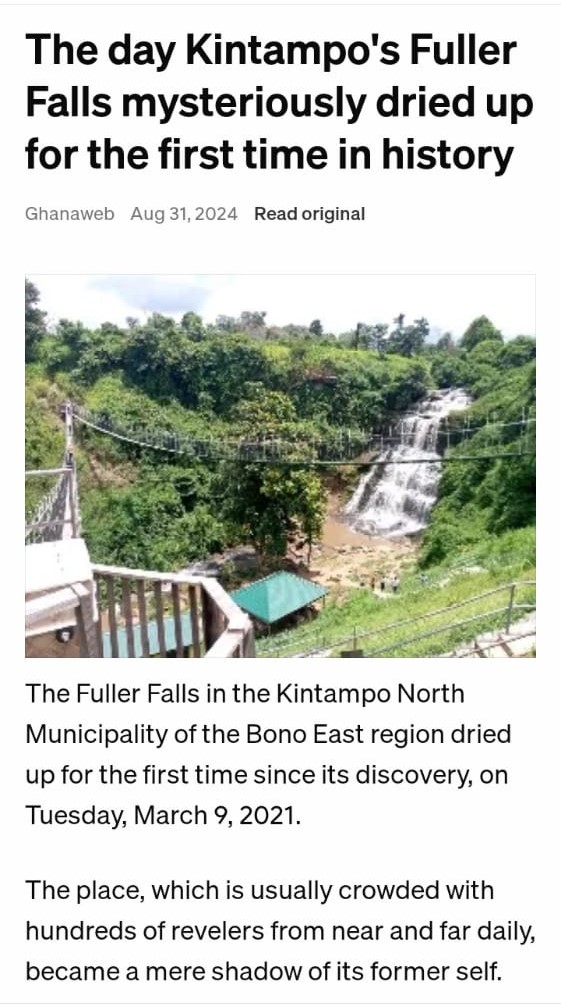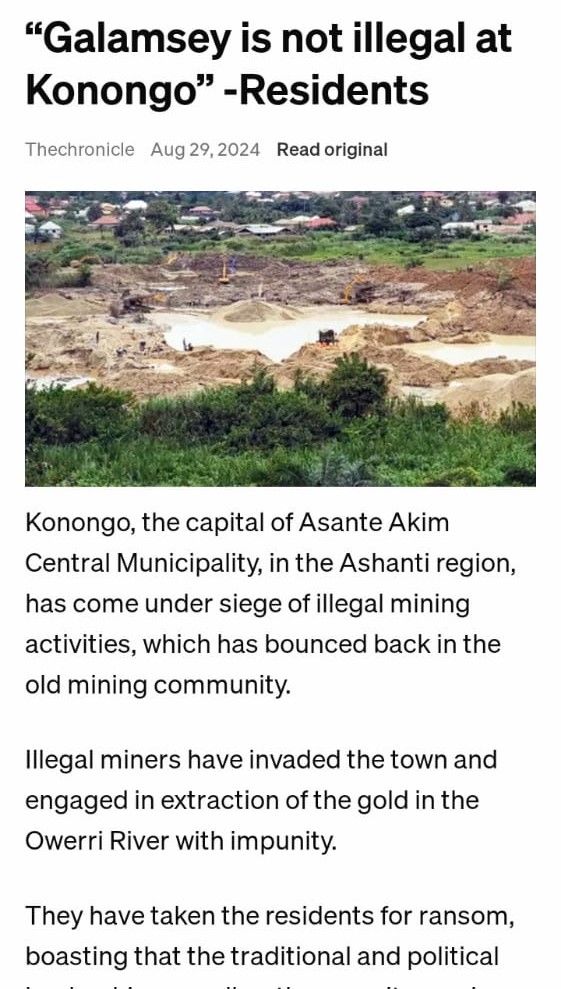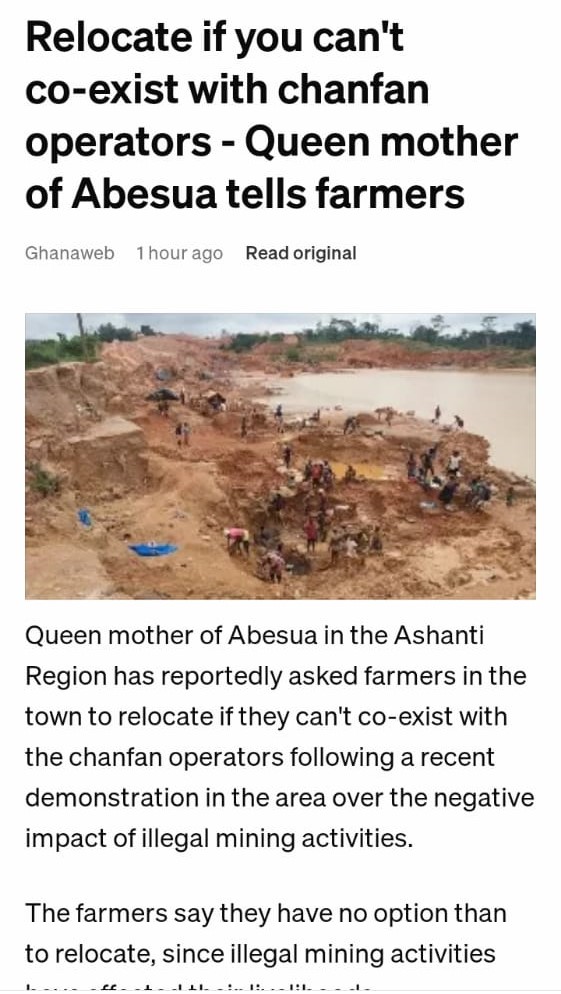MINING IN FOREST RESERVES – THE GHANA STORY
In November, 2022, the Government of Ghana scrapped the guideline that limited mining in forest reserves and then enacted ‘The Environmental Protection (Mining in Forest Reserves) Regulation, 2462. The old guidelines allowed mining activities in only two percent of the area of some forest reserves, however, LI 2462 has no such restriction. The guidelines also prohibited mining in Globally Significant Biodiversity Areas. LI 2462, on the other hand, gives the president discretionary power to approve mining in these uniquely critical reserves.
Since its passage LI 2462, has in less than two years permitted more mining in forest reserves than any legislation before it. This LI 2462, instead of placing Forest Entry Permit as foremost, rather placed it at the last stage. Interestingly, the Environmental Protection Agency and the Minerals Commission do not see anything wrong with such mishap.
Data from the Minerals Commission’s website shows that in less than two years, ten companies have been granted 10 leases to mine in eleven forest reserves with some of the companies being granted concessions that will expire in 2053. This poses serious risk that large swathes of the country’s forest cover would be depleted.
Globally Significant Biodiversity Areas.
Under this Law (LI 2462), the President has the authority to allow mining and prospecting in these forest reserves (classified as Globally Significant Biodiversity Areas) if he deems it necessary in the national interest. Some of these forest reserves are:
- Neung South Forest Reserve
- Draw River Forest Reserve
- Oda River Forest Reserve
- Boin Tano Forest Reserve
- Jimira and Jimira Extension
- Mamiri Forest Reserve
- Bonsa River Forest Reserve
- Tano Anwia Forest Reserve
- Anhwiaso Forest Reserve
The cautions
‘In view of the environmental sensitivity of these forest reserves, and in the light of illegal full-scale mining operations being clandestinely undertaken in some forest reserves under the guise of prospecting, it is critical, that the agency, carefully considers this phenomenon to shape its decision on this issue’’. Chief Programme Officer, Justine Dzadra, Forestry Commission.
‘’Management (of the Forestry Services Division) is uncomfortable with the recent spate of conversions of the status of GSBAs to production areas” and recommend “suspension of the process of conversion”. Executive Director of Forestry Services Division (under Ghana Forestry Commission).

The Effects
There are media reports, corroborated by satellite imagery, that show the hefty environmental damage caused by mining in Ghana’s forest reserves, where some lush rainforests have been turned into toxic and barren wastelands.

National Challenge in Combating Irresponsible Mining.
Rather a sad reality to note that, a number of Companies operating in forest reserves are owned by politically exposed persons who had anticipated that LI 2462 would be passed and were already preparing themselves and angling for concessions to mine for mineral resources ahead of its passage.
Likewise, all those undertaking the irresponsible mining closer to water bodies, highways, towns and farmlands are highly connected to some level of authority, either local or national. This explains the political intricacies of the Ghana’s inability to combat the menace.
Primarily, in a bid to exert their influence, these politically exposed and neck-deep persons, and their companies make donations in a form of cars and buildings to critical state institutions such as the security services.


In conclusion, one can say in plain terms that there is lack of political will on the part of state actors to prosecute persons, engaged in irresponsible mining, head on and find lasting solutions.
Disclaimer: The images and the news stories do not belong to greenCHAIN AFRICA

